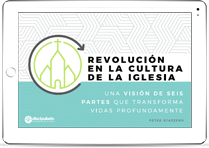For years I wondered, “How is Christian planning and decision-making different? How do I safeguard we are “carrying out plans” that are God’s and not our own (Isaiah 30:1)? The integration of the word Christian with planning and decision-making was much more challenging than I imagined.
Health is best measured on a continuum. Use this brief assessment to get an idea of where you are today. Next to each statement, write down the number that best describes your response. Use the following scale:
5 = Always true of me
4 = Frequently true of me
3 = Occasionally true of me
2 = Rarely true of me
1 = Never true of me
_____ 1. Discernment and the doing of God’s will is my most important work as a leader.
_____ 2. I am acutely aware of the temptation to pursue more opportunities than God intends because of my own shadow or the pressure of others.
_____ 3. I consider the inner preparation of the planning/decision making process (e.g. sufficient time alone with God) as more important than external preparation (e.g. gathering relevant data).
_____ 4. I allow enough time for a prayerful, reflexive process for planning and decision-making.
_____ 5. I engage in short-term pain for the long-term good of our ministry and organization.
_____ 6. I am careful not to engage in important conversations, or make plans and decisions, when I am triggered, upset, or angry.
_____ 7. My decisions and plans are informed by my marriage/singleness, rhythms of loving union with Christ, and Sabbath practice.
_____ 8. I take into thoughtful consideration the impact of decisions and initiatives will have on the leaders who serve alongside me.
_____ 9. I don’t make decisions without prayerfully, and prudently, thinking through the long-term implications.
_____ 10. I am profoundly aware that my will often conflicts with God’s will.
Take a moment to briefly review your responses. What stands out most to you? For a practical example of how to do this with your team, see my most recent blog post: The Woodcarver, a Leadership Team Experience.






